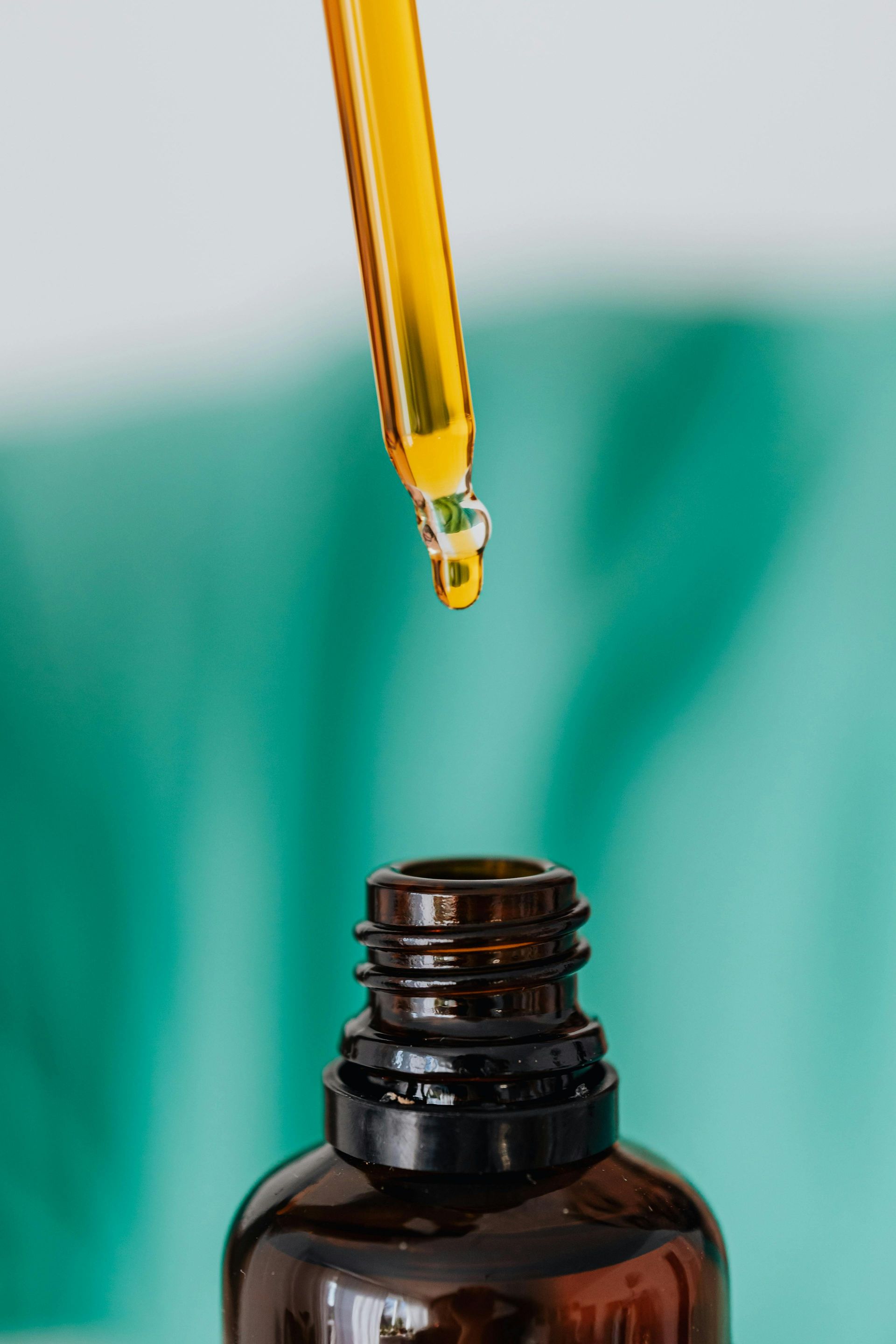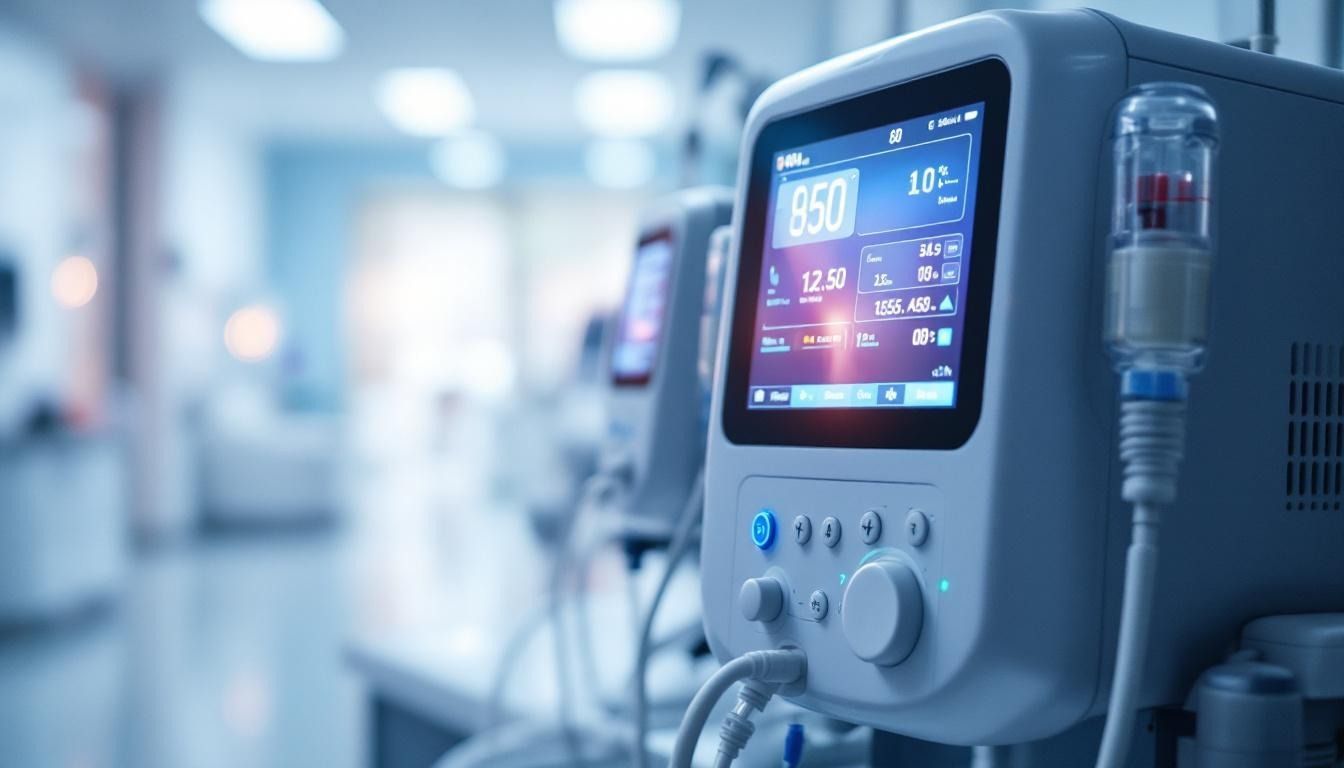How IVIG supports immune health
Understanding Intravenous Immunoglobulin (IVIG) and Its Role in Immune Health
Intravenous immunoglobulin (IVIG) is a therapeutic preparation derived from the pooled plasma of thousands of healthy donors. Rich in immunoglobulins, primarily IgG, IVIG plays a vital role in bolstering and regulating the immune system. This comprehensive article explores how IVIG supports immune health, its mechanisms of action, therapeutic uses, procedures, potential side effects, and the scientific evidence underpinning its efficacy.
How IVIG Supports and Enhances the Immune System

Provision of broad-spectrum antibodies
IVIG is a preparation made from plasma pooled from thousands of healthy donors, containing a wide array of immunoglobulins, predominantly IgG. These antibodies provide immediate, broad-spectrum immune support by neutralizing a variety of bacteria, viruses, toxins, and other pathogens. This makes IVIG particularly useful for individuals with antibody deficiencies who cannot produce enough natural antibodies themselves. The infusion replenishes missing immunoglobulins, helping the body effectively fight infections.
Neutralization of pathogens and toxins
One of the primary actions of IVIG is its ability to neutralize infectious agents directly. The pooled antibodies bind to pathogens like hepatitis A, B, measles, and rubella, preventing their entry into cells and neutralizing toxins produced by bacteria. This action reduces the severity of infections and supports recovery. Additionally, IVIG can inactivate certain autoantigens and inflammatory molecules, decreasing tissue damage caused by autoimmune responses.
Immune modulation through various mechanisms
Beyond antibody replacement, IVIG exerts multiple effects that modulate the immune system. It inhibits the activity of harmful autoantibodies, preventing them from attacking the body's own tissues. IVIG also influences immune cell behavior by interacting with Fc receptors and cytokines, leading to decreased activation of immune cells involved in inflammation. It helps shift T helper cell responses, promotes regulatory T cell functions, and blocks complement activation. These combined mechanisms help reduce inflammation, suppress autoimmune activity, and restore immune balance.
| Function | Description | Impact |
|---|---|---|
| Antibody replacement | Supplies broad antibodies to fight infections | Prevents recurrent infections |
| Pathogen neutralization | Binds to viruses and toxins, neutralizing their effects | Reduces infection severity |
| Autoantibody neutralization | Blocks harmful autoantibodies that attack tissues | Alleviates autoimmune symptoms |
| Fc receptor modulation | Interacts with immune cell receptors to alter cell responses | Suppresses inflammation |
| Cytokine regulation | Modulates production and activity of cytokines | Balances immune responses |
| Complement inhibition | Prevents complement cascade activation that can damage tissues | Reduces tissue injury |
This comprehensive immunomodulatory capacity makes IVIG a versatile treatment option in various immune-related conditions. Its ability to both strengthen immune defenses and suppress detrimental immune responses underpins its wide clinical applications.
Therapeutic Uses of IVIG in Supporting Immune Health

What are the therapeutic uses of IVIG in immune health?
Intravenous immunoglobulin (IVIG) is a versatile treatment employed in managing numerous immune-related conditions. Its primary role in immune health is to replace missing or deficient antibodies in patients with primary immunodeficiency disorders, such as Common Variable Immunodeficiency (CVID) or X-linked agammaglobulinemia. By providing a broad spectrum of immunoglobulins derived from thousands of healthy donors, IVIG offers passive immunity, helping these individuals fight infections more effectively.
Beyond immunodeficiency, IVIG is widely used to modulate immune responses in autoimmune and inflammatory diseases. Conditions such as autoimmune cytopenias (e.g., idiopathic thrombocytopenic purpura), Guillain-Barré syndrome, and chronic inflammatory demyelinating polyneuropathy (CIDP) benefit from IVIG's ability to neutralize harmful autoantibodies, inhibit immune cell activation, and decrease inflammation.
It is also effective as a hyperimmune therapy in specific infections, providing targeted broad-spectrum neutralizing antibodies. This application is especially useful against pathogens like hepatitis A and B, rabies, and tetanus, where it helps accelerate recovery and reduce disease severity.
The mechanisms of IVIG include neutralizing toxins and pathogens, modulating Fc receptor activity on immune cells, regulating cytokine production, and balancing T cell and B cell functions. These actions help restore immune homeostasis and suppress aberrant immune responses.
In summary, IVIG plays a critical role in supporting immune health by fortifying defenses against infections and curbing excessive or misdirected immune activity, making it an essential treatment for various immune deficiencies and autoimmune conditions.
Mechanisms of Action of IVIG in Immune Modulation

What are the mechanisms of action of IVIG in immune modulation?
IVIG, or intravenous immunoglobulin, influences the immune system through multiple pathways. It interacts with Fcγ receptors on immune cells, modulating their activity to reduce inflammation.
Interaction with Fcγ receptors
A primary mechanism involves binding to Fcγ receptors on cells like macrophages, dendritic cells, and B cells. This interaction can inhibit cell activation, decrease pro-inflammatory responses, and promote the elimination of autoantibodies.
Suppression of B lymphocyte proliferation
IVIG has a role in suppressing the proliferation of B-lymphocytes, which produce autoantibodies in autoimmune diseases. By downregulating these cells, IVIG helps reduce the production of harmful autoantibodies.
Neutralization of cytokines
It also neutralizes various cytokines—signaling proteins that promote inflammation. By binding to and inactivating cytokines such as IL-1, IL-6, and TNF-alpha, IVIG helps decrease inflammatory responses.
Inhibition of complement activation
Complement activation is part of the immune response that can lead to tissue damage. IVIG inhibits this process by binding to complement components, thereby preventing excessive inflammation and tissue injury.
Modulation of immune cell functions
Beyond these effects, IVIG modulates the activities of various immune cells, including T cells, monocytes, and regulatory T cells. These actions help restore immune balance and promote immune tolerance.
These combined effects make IVIG effective in treating immune deficiencies, autoimmune disorders, and inflammatory conditions by dampening harmful immune responses and supporting immune regulation.
IVIG in Autoimmune Diseases: How It Works
How does IVIG work in autoimmune disease?
Intravenous immunoglobulin (IVIG) exerts diverse effects that help regulate and suppress abnormal immune responses seen in autoimmune conditions. Its broad spectrum of pooled antibodies works by neutralizing pathogenic autoantibodies in the blood, which are responsible for attacking the body's own tissues.
Furthermore, IVIG interacts with Fc gamma (Fcγ) receptors on immune cells such as macrophages, monocytes, and dendritic cells. These interactions inhibit the activation of these cells and reduce the release of inflammatory cytokines, lowering tissue inflammation.
IVIG also plays a role in suppressing autoreactive B cells, which produce harmful autoantibodies, and influences T lymphocyte behavior, helping to restore immune balance. This includes shifting T helper cell subsets toward a less inflammatory profile and promoting regulatory T cell activity.
Overall, IVIG helps restore immune system harmony by dampening damaging immune responses, reducing inflammation, and protecting tissues from autoimmune attack. Its actions translate into symptom relief and improved disease control for many autoimmune patients.
How does it reduce pathogenic autoantibodies?
IVIG neutralizes circulating autoantibodies directly through competitive binding. It also blocks Fc receptors involved in autoimmune tissue destruction, preventing immune cells from mediating damage. By saturating neonatal Fc receptors, IVIG enhances the elimination of pathogenic IgG autoantibodies, decreasing their circulation over time.
How does IVIG suppress immune cell activation?
IVIG inhibits immune cell activation by binding to Fcγ receptors, which diminishes signaling pathways that promote inflammation. It also modulates cytokine production, reducing pro-inflammatory cytokines while increasing anti-inflammatory mediators. This comprehensive suppression leads to less immune cell infiltration and tissue damage.
How does IVIG help restore immune balance?
In autoimmune diseases, immune imbalance often involves overactive effector cells and insufficient regulatory cells. IVIG promotes the expansion and function of regulatory T cells while reducing the activity of autoreactive B and T cells. This helps reestablish immune tolerance and diminish ongoing tissue injury.
Effects on T cells and B cells
IVIG influences T cells by shifting their subset balance away from pro-inflammatory types and enhancing regulatory T cells that suppress immune responses. It also inhibits B cell differentiation into autoantibody-producing plasma cells, decreasing harmful antibody levels. These combined effects help modulate immune activity more harmoniously.
Procedures, Side Effects, and Benefits of IVIG Therapy
What are the common procedures, side effects, and benefits of IVIG therapy?
IVIG therapy involves administering pooled human immunoglobulins through an intravenous (IV) infusion. The process is typically performed in a hospital or clinical setting, with each session lasting between 2 to 4 hours depending on the dose and individual patient needs. The doses are carefully calculated based on body weight and the condition being treated, ranging from replacement doses of about 400-600 mg/kg monthly for immunodeficiencies, to higher doses up to 3000 mg/kg for immunomodulatory purposes.
The infusion procedure is generally well-tolerated. Healthcare professionals monitor vital signs closely during the infusion, watching for any adverse reactions. To minimize side effects, infusion rates are gradually increased, and premedications like antihistamines or acetaminophen are sometimes used.
Most patients experience mild side effects, which can include headache, chills, fever, nausea, fatigue, or skin reactions at the infusion site. These symptoms are usually temporary and manageable. Rarely, more serious side effects can occur, such as allergic reactions, kidney impairment, or blood clots. In these cases, immediate medical intervention is essential.
The main therapeutic benefits of IVIG therapy are significant. For individuals with immune deficiencies, IVIG replenishes missing antibodies, reducing their susceptibility to infections and improving overall health. In autoimmune diseases, IVIG helps modulate immune activity by neutralizing autoantibodies, suppressing harmful immune responses, and reducing inflammation. This action can alleviate symptoms in conditions like lupus, myositis, or Guillain-Barré syndrome.
Overall, when properly administered and monitored, IVIG therapy offers a safe and effective means to support immune function and manage autoimmunity. Its ability to boost antibody levels and regulate immune responses makes it a vital treatment option for many immune-related conditions, with the benefits typically outweighing the relatively low risk of side effects.
Is IVIG an Immunosuppressant or Immunomodulator?
Differences between immunosuppressants and immunomodulators
Immunosuppressants are drugs or therapies that broadly dampen immune activity, often reducing the body's ability to fight infections and sometimes increasing susceptibility to disease. They are used in transplant rejection prevention and severe autoimmune conditions to inhibit immune cell proliferation and activity.
In contrast, immunomodulators modify the immune response in a more targeted or regulatory manner. They can enhance, suppress, or balance immune functions without completely shutting down immune activity. This balancing act helps improve autoimmune disease symptoms while maintaining enough immune function to protect against infections.
IVIG's regulatory effects
Intravenous immunoglobulin (IVIG) is regarded as an immunomodulatory rather than a strict immunosuppressive therapy. It contains pooled IgG antibodies from thousands of healthy donors, which can neutralize autoantibodies, inhibit Fc receptor-mediated immune cell activation, and regulate cytokine production.
IVIG exerts its effects by modulating immune cell functions across various pathways: it can suppress the production of harmful autoantibodies, promote regulatory T cell activity, and inhibit inflammatory cytokines. Unlike traditional immunosuppressants, IVIG tends to restore immune balance without eliminating essential immune responses.
Clinical contexts of suppression vs. modulation
In autoimmune and inflammatory diseases, IVIG's role leans toward suppression of pathogenic autoantibodies and inflammation. However, it does not entirely shut down immune responses like some chemotherapy-based immunosuppressants do.
It is used to recalibrate an overactive immune system, reducing tissue damage and symptoms, but usually preserves the immune system's ability to defend against infections.
In immunodeficiency states, IVIG acts as a replacement, ensuring the immune system has enough functional antibodies to combat infections, which is more supportive than suppressive.
| Aspect | Immunosuppressant | IVIG (Immunomodulator) | Main Use | Effect on Immune System | Typical Contexts |
|---|---|---|---|---|---|
| Action | Broad suppression | Regulation and balancing | Transplant, autoimmune | Diminishes immune activity | Severe autoimmune, transplant rejection |
| Effect | Reduces immune cell proliferation | Modulates autoantibody activity | Autoimmune diseases | Restores immune homeostasis | Autoimmune, inflammatory, deficiencies |
| Risk | Increased infection risk | Lower risk of broad suppression | Various | Variable; can suppress or modulate | Autoimmune disorders, immune deficiencies |
Overall, IVIG acts primarily as an immunomodulator, focusing on restoring immune balance and suppressing harmful autoimmunity, rather than generally suppressing the entire immune system like classic immunosuppressants.
Scientific Evidence Supporting IVIG's Role in Immune Support
What is the evidence supporting the efficacy of IVIG in immune support?
Extensive clinical research has firmly established the effectiveness of intravenous immunoglobulin (IVIG) in boosting and modulating the immune system across various medical conditions. For patients with primary immunodeficiency disorders, such as Common Variable Immunodeficiency (CVID) and X-linked Agammaglobulinemia (XLA), IVIG therapy has demonstrated a remarkable ability to replenish deficient IgG levels. This replenishment significantly reduces susceptibility to bacterial and viral infections, leading to improved health outcomes.
Clinical trials have also shown IVIG's success in treating autoimmune and inflammatory diseases. Diseases like Guillain–Barré syndrome, Chronic Inflammatory Demyelinating Polyneuropathy (CIDP), idiopathic thrombocytopenic purpura (ITP), and dermatomyositis have responded favorably to IVIG therapy. Randomized controlled trials have reported reductions in disease activity, improved muscle strength, and decreased inflammation, highlighting IVIG's role in recovering immune balance.
In autoimmune conditions, IVIG's mechanisms include neutralizing harmful autoantibodies, modulating Fc receptor activity on immune cells, and regulating cytokine production. These actions collectively help suppress abnormal immune attacks, reduce inflammation, and alleviate symptoms. The consistency of positive outcomes across studies underscores IVIG's broad, clinically relevant impact.
Mechanistic insights from research reveal that IVIG influences various immune cells such as B cells, T cells, monocytes, and regulatory T cells. These effects contribute to immune tolerance, preventing autoimmune tissue damage. Overall, the body of clinical and experimental evidence provides compelling support for IVIG's vital role in maintaining immune health and managing immune-mediated diseases.
Supporting Immune Balance and Future Perspectives
IVIG stands as a cornerstone therapy in managing various immune deficiencies and autoimmune conditions. Its multifaceted mechanisms—ranging from antibody replacement to immune regulation—enable it to support immune health effectively. Ongoing research continues to uncover new applications and improve existing therapies, promising an even greater role for IVIG in the future of immunology. Proper administration, patient monitoring, and understanding of its immunomodulatory effects ensure that IVIG remains a safe and vital tool in safeguarding immune health.
References
- Intravenous Immunoglobulin (IVIG) - StatPearls - NCBI Bookshelf
- Intravenous Immunoglobulin (IVIg) Treatment: What to Know - WebMD
- Intravenous immunoglobulin as clinical immune-modulating therapy
- Immunoglobulin replacement therapy | Immune Deficiency Foundation
- Intravenous immunoglobulin (IVIg) | Side-effects, time to work
- IVIG and Chronic Infections: How IVIG Boosts the Immune System
- Intravenous immune globulin (IVIg) therapy - Lupus Foundation
- How IVig Boosts the Immune System and Kills Multiple Myeloma
- Intravenous Immunoglobulin (IVIG)
- Kids Health Info : Intravenous immunoglobulin (IVIg) infusion













